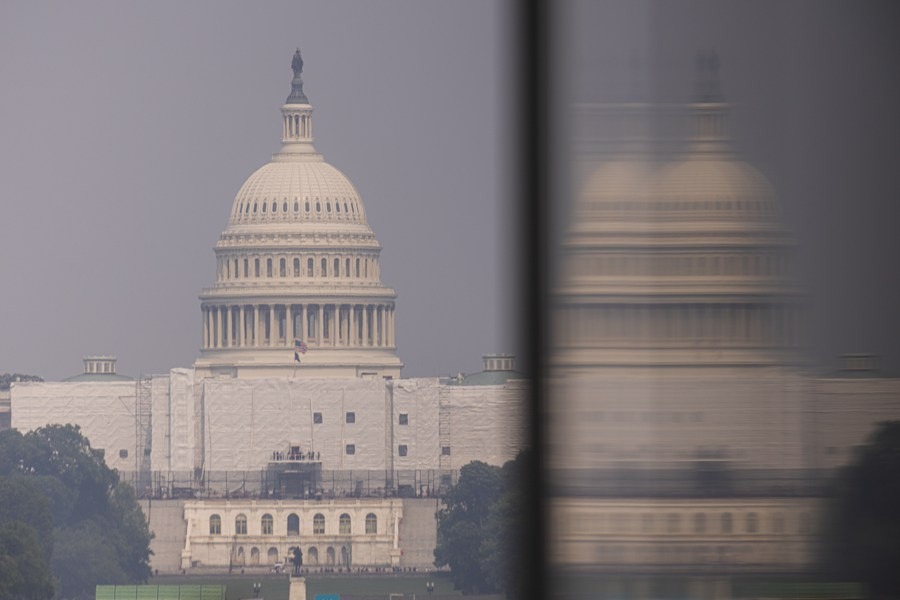What is your China game plan, Mr Biden?


At a recent Utah fundraiser US President Joe Biden, when referring to China's alleged economic woes, said "when bad folks have problems, they do bad things."
This is a very interesting statement. First, it insinuates that Biden believes that the CPC and China's legitimate government, which are responsible for ensuring the security and prosperity of the 1.4 billion citizens of the world's second largest economy, are nothing but a grouping of evildoers. On what basis, you may rightfully ask.
Second, what are those mysterious "bad things"? We can only speculate, but in a normal context, that would probably mean taking justified and rational measures aimed at safeguarding China's natural growth path. Since political ideology has little to do with fiscal or monetary policies in largely market-driven economies such as China's, such measures, if they ever needed to be taken, would likely be of a similar nature to those the US or other Western nations would implement in the same circumstances. Why would those be bad, then? Given the US' zero-sum game mentality, shall we assume that anything that helps the Chinese economy, and therefore the Chinese people, is bad news for the US?
China has repeatedly made it very clear that it expects the US to abide by three principles before any serious negotiation can take place: mutual respect, peaceful coexistence, and win-win cooperation. While it is obvious that the US government is not interested in peaceful coexistence or win-win cooperation with China, you could at least have expected mutual respect to be a given.
In nearly all competitive sports, it is expected of antagonists to respect each other. Those who don't abide by a certain code of honor are not worthy of competing. They are a disgrace to the sport and an embarrassment to spectators. And ultimately, they don't succeed, and no one mourns their loss.
In war however, a leader may very well decide to consistently attack his opponent's image as a propaganda tool useful in rallying public support.
It's thus clear Biden doesn't see China – and her people – as a mere economic competitor, but as an enemy with whom the US is at "war", pure and simple. The advent of the current state of "war" between China and the US was predicted by some analysts more than 10 years ago. Why? Because China has been successful in rising from an impoverished nation to a highly advanced country in a very short time, thus representing a sudden threat to the US hegemony, and very importantly because it is not a Western-style democracy.
What's the game plan, then? It is quite clear that the US' conduct of international relations in the past few years has been based on a "democracy vs autocracy dichotomy", the building of alliances with willing partners against China, and an abundance of lies and pretenses. The strength of supply chains, security in the Taiwan Strait and the South China Sea, the alleged threats posed by Huawei's networking equipment, the "dangers" of China taking the lead in AI innovation, are but a few excuses that have been fed to would-be vassals of the US.
While former US President Donald Trump perfectly understood the rationale of China's political system, Biden is bent on doing all he can to impose his simplistic view that Western-style democracy is the best form of government there is. But one needs look no further than the various plagues affecting America today. Mass shootings, the opioid crisis, widespread crime, misinformation, corruption and a multitude of corporate scandals are a few examples of how "not great" America is. Tragically, there's not much the Biden government does or can do about these critical societal issues, partly because, well, the US is a democracy. Yet he's on a crusade to champion and export a model that doesn't do a great job at home to nations that need none of his advice.
It wouldn't be the first time, far from it, the US went to war (militarily or economically) to impose its "democratic ideals" on other sovereign nations. When it comes to diplomacy, the US' playbook is rather simple: the best situation is when both questions of economic interests, which are the primary drivers, and "moral principles", which help secure public support, stand behind America's cause.
It's only logical then, that Biden will keep trying to further hurt China's interests in any way he can for the rest of his term. His dream of destabilizing China, however, will not bear fruit, and it is likely his more grounded successor will duly recognize the hard work, ingenuity, and peaceful aspirations of the Chinese people.
The author is based in Hong Kong. He is a seasoned professional writer and frequent commentator on Chinese foreign policy and international affairs. The views don't necessarily reflect those of China Daily.
If you have a specific expertise, or would like to share your thought about our stories, then send us your writings at opinion@chinadaily.com.cn or comment@chinadaily.com.cn.


































